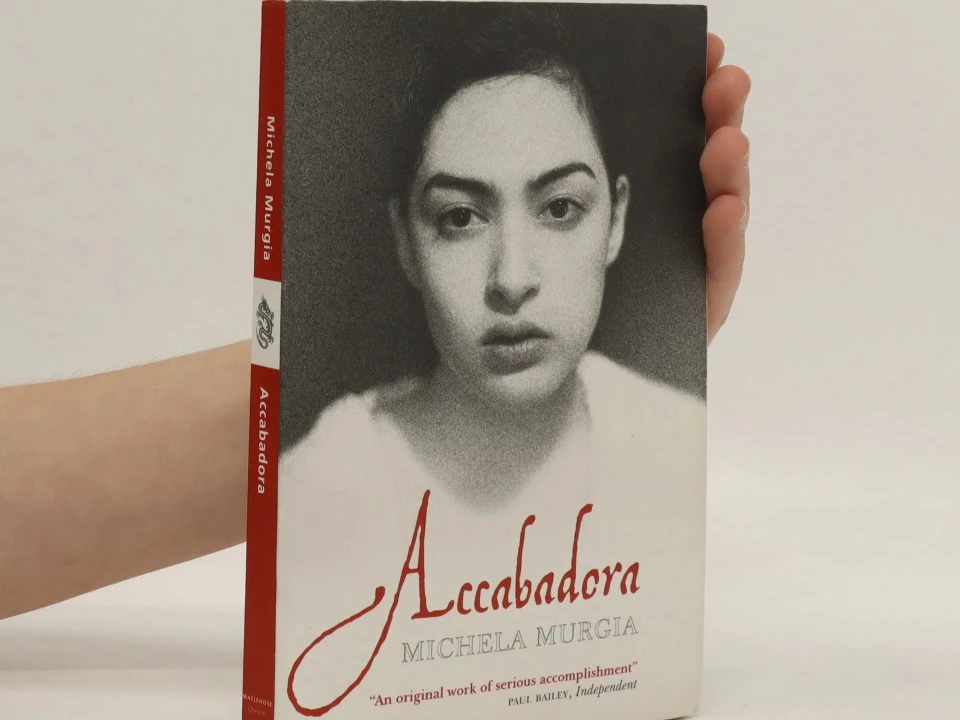This book was written by Italian novelist Michela Murgia (1972 – 2023) and published in 2009.
She was born in Sardinia and was very fond of her origin and the region she came from, in fact in 2006 she published a blog in which she described the less known places in Sardinia.
Michela Murgia received a catholic education and before undertaking her literary career, she did different jobs, among this she was a telephone saleswoman, an activity that later inspired one of her works.
In 2018, she took part in a play, portraying Italian author Grazia Deledda.
Accabadora won the Super Mondello and Campiello prize. As a matter of fact, Michela Murgia’s book has received seven major literary prizes.
“The award winning Accabadora is an exceptional English-language debut, written with intriguing subtlety reflecting a sensual picture of local Italian life and death in villages during the 1950's. A time where family ties and obligations still decide much of life's ebb and flow. A must read for those who love a touch of the unusual.”
The story centers around a six-year-old girl, Maria, who starts living with an older woman of the same village, Bonaria Urrai, also called Tzia Bonaria. The latter decided to take in the little child, raise her and even make her the heir to what she owns. In exchange, Maria must repay Tzia Bonaria by taking good care of her and being by her side when she needs it.
The old lady saw Maria while she was shoplifting and since no one was watching this little lonely girl, she decided to take her in with her and teach her how to sew and how to go through life.
Maria has therefore become what it is called “figlia d’anima” (daughter of soul) of Bonaria Urrai. This term is used in the Sardinian language to define that situation in which families with many children can compensate someone else’s sterility by an adoption arranged and established only verbally and by the promise of the parties involved. This tacit pact means that the “adopted” child will become the heir of his/her new family and in exchange he/she promises to take care of the “adoptive mother” when she is old.
However, no one in the small town of Soreni quite understands why this happened and everyone starts spreading negative comments on the two every time they walk together in the town.
Maria is the fourth child of a widow and consequently she is used to considering herself as “the last one”; she thinks of herself this way. That is why she is taken by surprise by the amount of attention and respect that Tzia Bonaria offers her. This old lady had not only offered Maria a place to stay and a future, but she also seemed to let the little girl live and be her own way.
Maria believes that Tzia Bonaria works as a seamstress and so she spends the days in the workshop inside the house.
The daily life of these two characters in the backdrop of a small town in the 1950s where the interactions among people are mostly by exchanges of looks and gesture, rather than words, shows the differences and contradictions between the old and the new. Whether it is school experience or religion, these two protagonists belong to two different worlds and generations.
But there is darkness in Tzia Bonaria. And it’s not in her dark clothes or her long silence. There is something mysterious around her and she scares everyone who meets her eyes.
Maria is particularly struck by the facts that the old lady gets out at night, but Maria can’t understand why, and that she seems to know a lot about life and death.
In fact, Tzia Bonaria hides a secret. And this secret will break the balance between the two. Bonaria Urrai has her own way of taking care of those dying in agony, by giving them a violent and merciful death.
“What everyone knows, and what Maria does not imagine, is that Tzia Bonaria Urrai sews clothes and comforts the souls, she knows about witchcraft and spells, but, when necessary, she is ready to enter homes to bring a merciful death. Hers is the loving and final gesture of the accabadora, the last mother.”
In the book, Sardinia in the 1950s is presented as a reality with its own rules and prohibitions and tacit agreements shared by the whole community. Such a community is like an entity that is aware of its needs by instinct and that knows how to tackle them without saying much.
“Michela Murgia, with a language that is both rough and poetic, uses all the force of literature to tackle such a complex topic without simplifying it. And she finds the words to question our world as she tells of that distant universe and its secret and substantial balance.”




